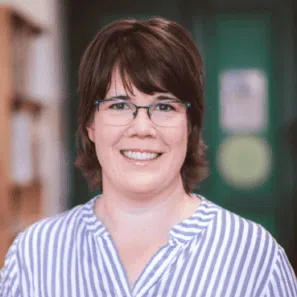Small-group Mentoring for Elementary (6-12) Classroom
Assessment in Montessori
"Make Assessment a Pathway for Growth — Guiding, Inspiring, Empowering."
What to Expect?
- Rethink our own attitudes toward assessment by exploring how our beliefs and past experiences influence the way we guide children.
- Discover the many faces of assessment and examine which approaches truly support independence and growth in a Montessori classroom.
- Dive into the research on formative assessment to uncover what evidence tells us about practices that genuinely improve learning.
- Cultivate a growth mindset for both guides and students, reframing mistakes and struggle as valuable steps on the learning journey.
- Connect the key elements of the learning pathway — goals, context, exemplars, criteria, and activities — so they flow together seamlessly.
- Translate vision into practice by designing concrete, sustainable routines for bringing formative assessment into the classroom.
Practical Takeaways:
- Gain clarity on their own approach to assessment uncovering how personal beliefs and experiences shape classroom practice, and learning how to reframe assessment as a tool for growth.
- Learn specific strategies and tools for formative assessment including setting clear learning goals with context, using exemplars, co-creating success criteria, and designing purposeful activities.
- Develop practical routines for self- and peer-assessment that foster independence, confidence, and intrinsic motivation in children.
- Experience and receive templates/handouts (lesson planning flows, exit ticket examples, reflection prompts) to make formative assessment more visible and sustainable in their classrooms.
- Build a peer-supported toolkit of ideas, examples, and reflections from fellow Montessori guides and educators facing similar challenges.
Meet your mentor

Lucie Urbancikova
Lucie Urbancikova has been passionate about second language teaching since 2003, working with learners from young children to top managers. In 2012, she immersed herself in the Montessori approach, seeking innovative ways to integrate second language learning with Montessori principles.
Lucie has dedicated six years to teaching English in Montessori classrooms for ages 6-12 and 12-15. Additionally, she spent five years as the Language Curriculum Coordinator for children aged 1.5 to 15 years. Her expertise spans teaching English and Czech as foreign languages, second languages, and mother tongues.
She holds a Master of Education in Experiential Education and AMI Assistant Certificates for ages 3-6, 6-12, and 12-18. She is also certified in TEYL, TEFL/TESOL, and as a mentor in educational settings. She has been a member of the Bilingual Montessori team since its foundation in 2022.
“When we give the students the tools to assess themselves, they become the owners of their learning.”
Dylan Wiliam
Format:
This program blends two powerful mentoring approaches:
- The guided mentoring phase offers key information through short pre-recorded videos and custom-designed tools that help participants structure their thinking and learning.
- The live online group mentoring sessions offer a space to share aha- moments, gain insight from others, and shape concrete, personalized steps to confidently bring the desired type of assessment into the 6-12 classroom.
This Program is for:
Montessori guides, assistants, administrators or second language teachers working in 6–12 Montessori classrooms, who:
- Want to gain a clear overview of different types of assessment and understand how to use them in a Montessori context
- Are ready to explore practical strategies for setting goals, using exemplars, co-creating success criteria, and making assessment a supportive part of learning
- Are willing to be active participants in their learning process — reflecting on their own beliefs about assessment, trying out new approaches, and sharing their experiences with others
Registration
November 10 – February 2, 2026
397 EUR
per person
6 Online Sessions on Zoom + recordings
Mondays 5:30 – 7:00 PM CET (GMT+1)
&
Video lectures to watch between live sessions
+ bonuses:
✔ Padlet access with ALL resources
✔ Learning & Reflective Journal (PDF)
✔ Certificate of attendance issued
by Montessori Institute Prague
DO YOU HAVE A QUESTION?
Feel free to contact us!
